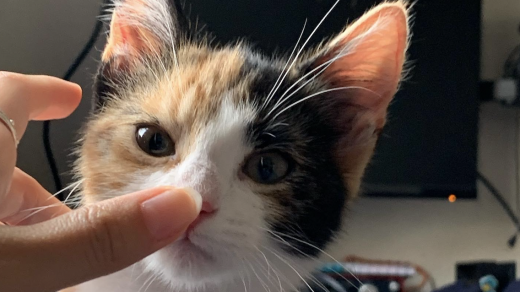Multi-Level Marketing, or MLMs, are business enterprises in which participants seek not only to sell products to friends, family, and social media contacts, but also to recruit them as MLM participants, with the promise of ‘building their own business from home.’ (Bradley & Oates, 2011)
In an MLM model, people are trying to recruit an army of others to sell the goods. The recruiter, often called the ‘upline’, gets a percentage of any sales the recruit, or the ‘downline’, makes. The business model seems to look a lot like a pyramid scheme, but what makes MLMs legal is the fact that the focus is on the real, tangible products. Companies like LuLaRoe sells women’s clothing, Herbalife sells food supplements and Youngevity sells nutritional supplements and energy drinks. But the fact that sellers can make often make more money recruiting others is very sketchy.
Gender roles
MLM sellers often try to lull their potential recruits, 73% of sellers are women, into a false sense of false security by engaging in friendship communication norms and behaviors. Naomi Yanike describes this behavior as ‘hunzoning’. Promises about flexible work opportunities, unlimited earning potential and the opportunity for women to be their own bosses are made during MLM pitches. The truth, however, is that statically less than 1% of sellers profit from MLMs. Many news stories and online discussion boards have shared stories of women and reactions to violations from being targeted by MLM sellers via aggressive strategies. (Yanike, 2020)
The role of social media
MLMs thrive mostly online now, especially via messages on Facebook and Instagram or through influencers who promote products and MLMs. Social media has been a vital tool in the recruitment of people who are vulnerable or unaware of MLMs.
Described the pandemic as a goldmine for MLMs, as salespeople from multiple companies have been recruiting aggressively, while unemployment numbers in the US were high. Especially mothers. Social media is the place to show off wealth and succes, not just to your own followers but to people who randombly see you in their feed.. But, while MLMs thrived during the pandemic, but there are also communities on Youtube and Reddit dedicated to ‘exposing’ the false promises of MLMs and explaining the risks. These groups have quite large followings and videos on Youtube garner millions of views. Documentaries like ‘Betting on zero’ on Netflix take a dive into the practices of Herbalife. Tiktok became the first major social media platform to declare in 2020 that multilevel marketing was forbidden, under a section of updated policy prohibiting various types of ‘frauds and Scams’.
Luckily, even though this phenomenon also exists in the Netherlands, I myself have no experience with MLMs or getting messages like this. The reason for this is the fact that I am not in the targeted age group and don’t have a large social circle. But I had heard of MLMs, I’ve seen it discussed on talkshows and I’ve seen the documentary about women quitting LuLaRoe. But that was a while back and it was interesting to see how MLMs have grown during the pandemic. The fact that vulnerable women are mostly targeted by these MLMs, whose products also mostly cater to women (like weight loss supplements or leggings) is an disturbing trend. Especially since, despite bans, MLMs seemingly find a way to stay visible on social media. Let me know what you think!
References
https://www.buzzfeednews.com/article/laurenstrapagiel/tiktok-is-still-rife-with-mlms
https://www.theatlantic.com/technology/archive/2020/12/tiktok-bans-multilevel-marketing-mlm/617422/
Christopher G. Bradley and Hannah Oates, The Multi-Level Marketing Pandemic, Forthcoming, Tennessee Law Review (2021) 1-45.
Mary V. Wrenn & William Waller (2021) Boss Babes and Predatory Optimism: Neoliberalism, Multi-level Marketing Schemes, and Gender, Journal of Economic Issues, 55:2, 423-431.
Naomi L. Yanike, Hunzoning: A Qualitative Study of Women’s Expectancy Violations Surrounding Multi-Level Marketing Message Strategies on Facebook (University of Nebraska 2020).



Great blog! I personally feel like these are dangerous, inescapable internet cults- I’d imagine it’s kind of hard to get rid of these people after you’re in it since most of the data on www is openly accessible. You can’t just change your address or appearance, or and hide the way you would if it was an irl sort of group. It’s really difficult to erase yourself or hide already public information about yourself online…daunting.
Thank you for this blog! It is so important to talk about MLM’s and how they are not in fact this ‘dream come true’. I remember I’ve met a couple of people entangled in MLM’s when I was a kid and their business strategy mostly consisted of carrying pamphlets around. I can only imagine the opportunities they have now, with social media, the number of vulnerable people they can recruit now. I think taht it’s so gender specific because it is advertised as a perfect way to provide for your family while still having time for your kids, so many stay-home mothers are tempted by this vision and get entangled into something that does not bring profits at all.
I’d watched the Vice video before reading your blog and it was truly shocking to see how these women are targeted. But reading your blog was interesting as I learned that social media has both been used to promote MLMs via facebook messenger but also some social media platforms have banned MLMs.